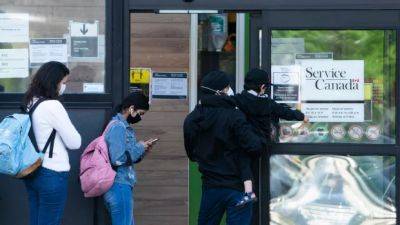Plastic production cap still contentious as Ottawa set to host treaty talks
Negotiators from 176 countries will gather in downtown Ottawa this week for the fourth round of talks to create a global treaty to eliminate plastic waste in less than 20 years.
Ottawa is hosting the fourth of five rounds of negotiations, with the aim of finalizing a deal by the end of the year.
The proliferation of plastics has been profound, as it is a preferred material largely for its affordability and longevity. But that also means it never goes away, and the impact on nature and growing concerns about human health are leading a push to get rid of plastic waste and eliminate the most problematic chemicals used to make it.
Canada’s environment minister, Steven Guilbeault, played a crucial role in getting the plastic treaty talks underway in 2022 when he helped push a resolution at the United Nations Environment Assembly in Kenya. He remains firm that a strong treaty is needed.
“We want to move as rapidly as possible to eliminate plastic pollution,” he said in an interview with The Canadian Press. “I mean, the collective goal we’ve set for ourselves is to do it by 2040, but I think both from an environmental and a health perspective, the sooner the better.”
But Guilbeault is still reluctant to take a definitive position on the elephant in the negotiating room: a cap on plastic production.
“We want an ambitious treaty,” he said.
“I don’t think right now is the time to start … getting bogged down on certain things and say, ‘OK, well, this is it.’ Let’s have the conversation and see where we land.”
For many environmental and health organizations observing the talks, the only way to solve the plastic crisis is to cut back on the amount produced in the first place.
But that’s a no-go zone for the chemical and plastic production







